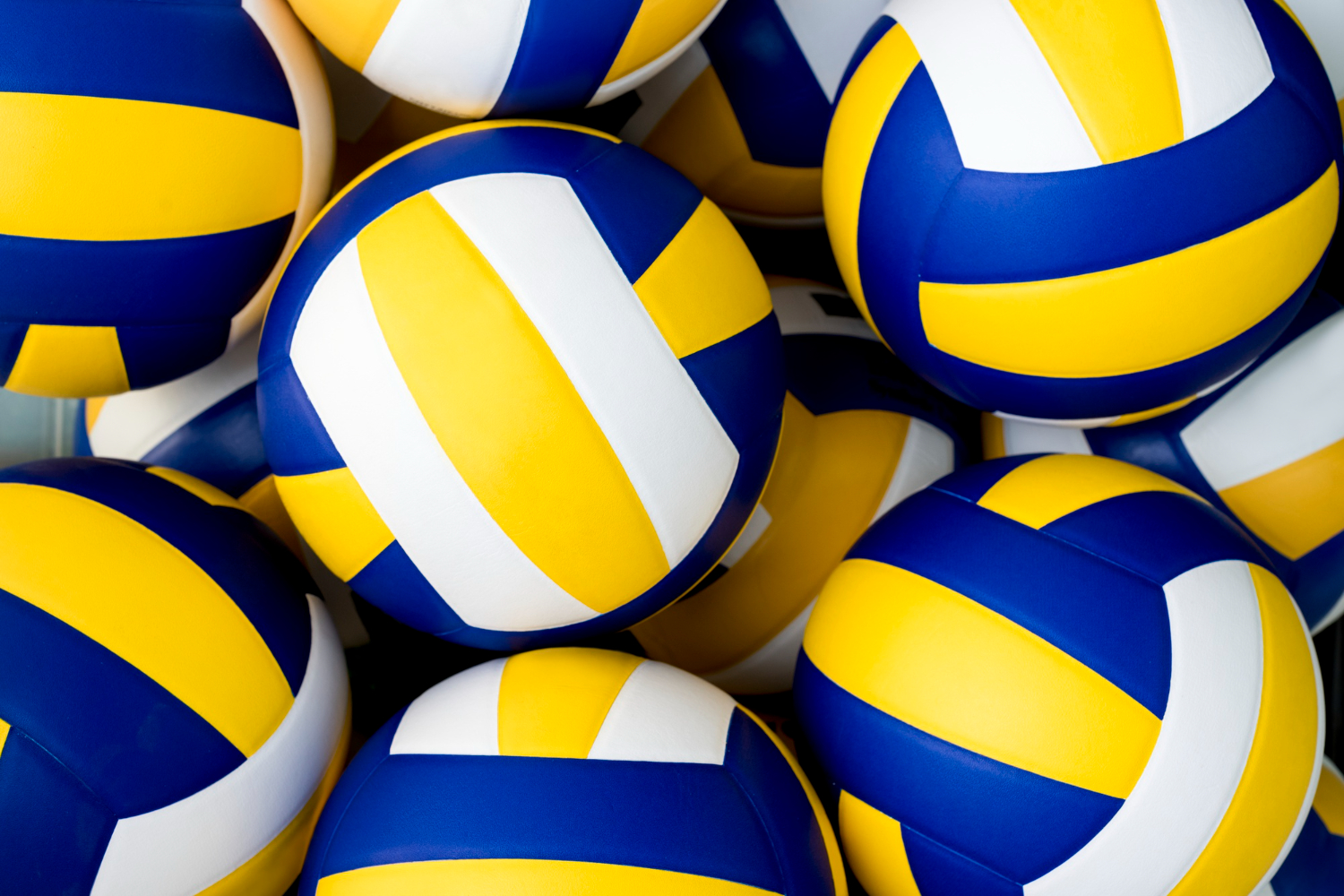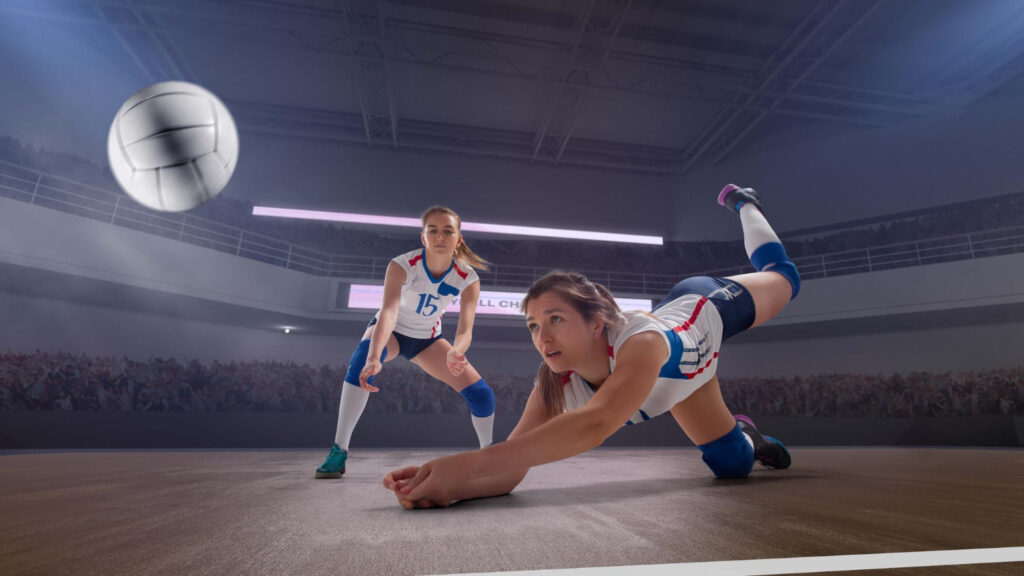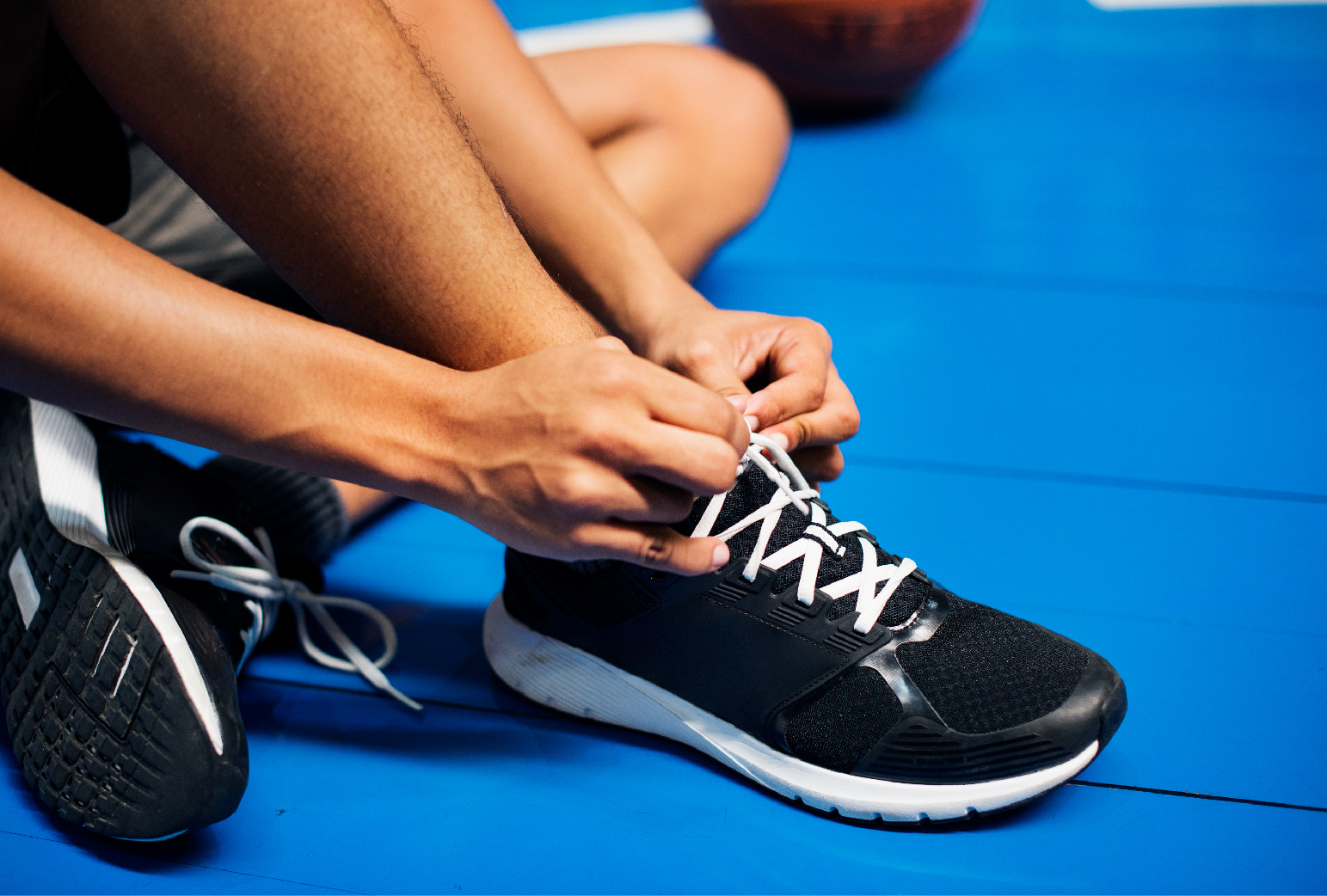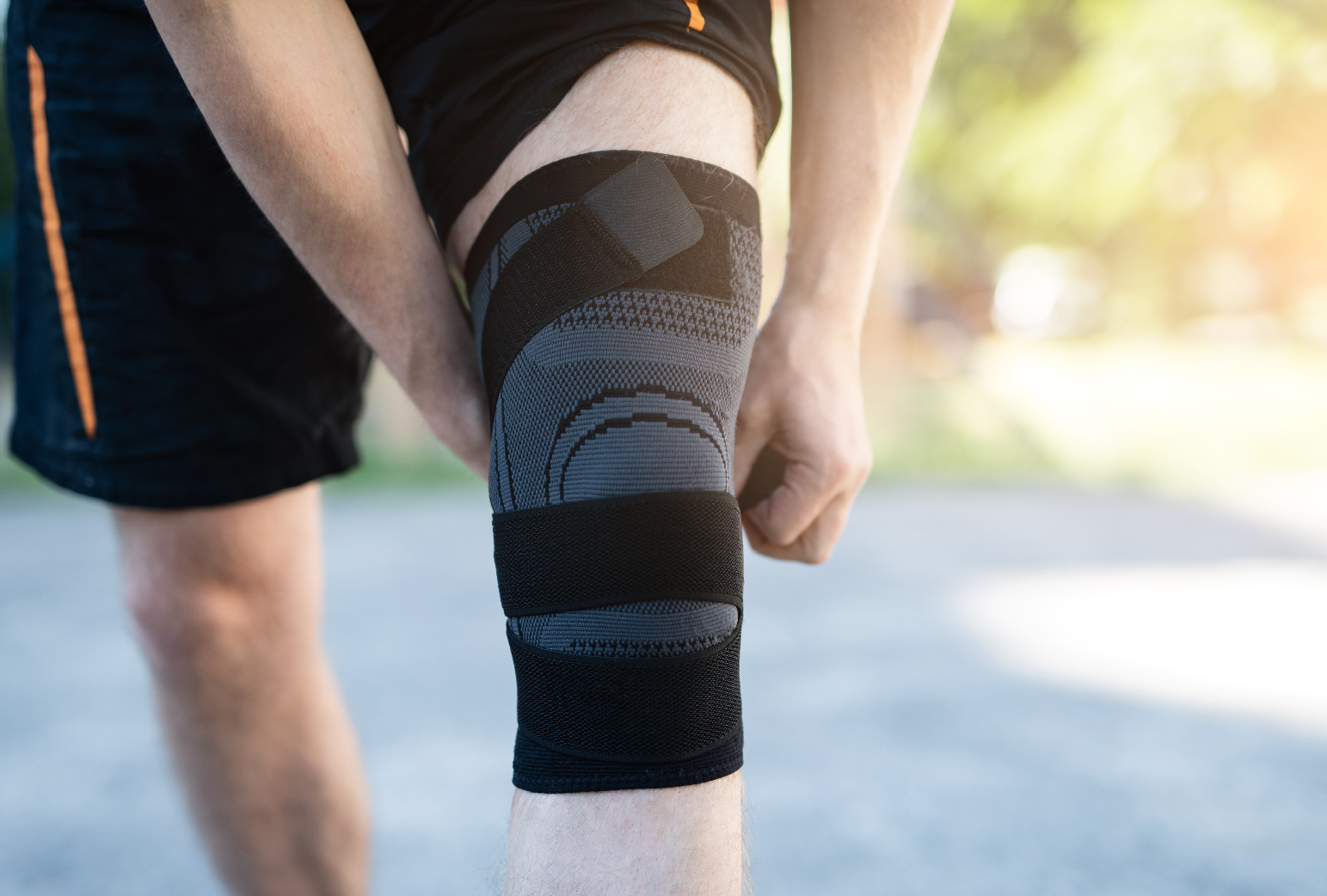

Well! The purpose of the DS is to stop the other team from scoring. Yes! The defensive Specialist’s job is to defend the outside player from the net.
Protecting the outside players is just as vital since they are crucial to hitting. A strong offensive player must be adaptable enough to fill a variety of roles. Well! It’s not easy to become the best DS, you must take hard work and talent to make it as a defensive specialist. In this article, we will explore what is a DS in volleyball and their responsibilities.
The defensive specialist, or DS, is reliable in all three defensive roles: passing, digging, and hitting. Their responsibility is to serve the ball to the server consistently. They dive all over the field to make unbelievable plays. Substituting for a starter in the front court is the only position they play.
When a player from the front row moves to the back, the DS often enters the game in their place. Usually, they’ll go in to serve and then shift just among the back row members before returning out for the first player in the front row. They must enter the game alert and prepare for passing or diving.
They will frequently take turns playing the sides with other back-row players as they move through the positions. While the DS is responsible for the center of the court, the libero protects the back. Three participants are in the back row during serve receive because the hitter or setter often assists in covering. However, the DS and libero switch places in the back row depending on who performs in the front.
The Libero is significantly distinct from a DS.
The libero is one of the rare players to start and finish every game. A DS is an unofficial position that appears only in the most intense of setups.
A DS, in contrast to the Libero, wears a regular-colored jersey, may rotate onto the front court, and can spike the ball.
Unlike the Libero, the DS cannot freely replace players at will but must enter the game via a substitute like every other participant.
Well! We know what you have to ask: is it advantageous to play the DS position in volleyball?
In volleyball, the best and most enjoyable position to play is the DS. Defensive specialists enter the game just at crucial periods or for specialized players.
Since it is on them to save the day, their play style typically results in thrilling scores and may be as enjoyable as being a spiker.
Being a DS calls for a well-rounded skill set, but one with a particular focus on defense. It is the defensive specialist’s responsibility, along with the libero’s, to maintain order on the court by sound judgment and consistency.
While defense doesn’t exactly ring with flare, some of the most exciting plays in sports begin with a spectacular reception. It’s far simpler to strike a deadly spike than to avoid it. Whether passing by, diving, scooping up the block touch, or protecting for the setting position, the DS makes its existence felt.
The DS, in contrast to the libero, may also spike. The DS is unique among spikers since it focuses on the rear row, where hits are more reliable than in the front.
Not obtaining enough court time is a major concern for several players when considering DS as a sport.
If your side’s hitters are having a particularly successful passing day or the other team is having trouble scoring, you may not even need to enter the game as a defensive sub. It isn’t very encouraging when it happens. But you will have your day.
Keep in mind that your value is not based on how much you played but on the difference you made. When comparing positions within volleyball, the DS has the greatest impact-to-time proportion.
Most volleyball players generally don’t think of DS as a position, but it’s great to have the ability to jump in and support your team when they need it.
The job of DS is a rather thrilling one since you’re only on the court in high-pressure zone moments.
Yes, as a DS requires a great deal of duty… Never come in as a substitute and miss the pass when the score is 24-25!
The DS position is perfect for someone who likes to dive all over the court and hit passes on serve receiving.
Activities help defensive specialists become more effective at what they do. Their passing, digging, and court vision will all improve with practice. Here are three approaches that will assist defensive experts in becoming better.
In this practice, two players share the court while the referee stands at the net. The coach initiates play by hitting, tipping, or throwing the ball into play. The players have two touches to return the ball to the coach. The players remain in the playing area until they achieve a certain number of finishes. They will lose all of their completions if the ball strikes the surface without any effort on their part.
No areas are considered out of bounds, and players may join the game at any point.
This is a basic exercise, but it’s great for improving digging skills since it involves two players working together. Players space themselves sufficiently apart so that a hit, tip, or pass from one player may reach the other. When it’s their time to dig, the coach or players pick how many balls they’ll get. One player hits, tips, or tosses the ball multiple times at the other player. After one round, the participants exchange places. Well! Be careful to return challenging balls to each other.
In this exercise, you will need to draw a tiny box on the playing surface with a big box surrounding it. Get in a line to catch the ball as a team. The first player receives a hit, a tip, or a throw from the coach. The next step for the player after digging the ball is trying to get hold of it. Tiny box, large box, and wherever else are all acceptable catch zones, but catching it in the tiny box is ideal.
So, if the first player catches their ball in the big box, but the opponent receives their ball in the tiny box, the former one is out. Down the line, do this until just one person is remaining.
It’s crucial to remember that if two players grab the ball at the same time, they both continue playing.
The achievement of the team depends on the DS’s execution of critical duties.
A defensive specialist must have excellent serve and receive passing skills. It’s never fun to be passed on or miss it, leaving your team trying to recover. The burden is on the DS to make the necessary adjustments to receive the subsequent serve effectively if the serves are challenging.
The DS has to have much experience receiving serves using proper throwing skills. They need to effectively communicate with the libero in the back row so that everyone knows what areas they are responsible for protecting. When a ball comes in from behind the net, the DS generally gets it before it reaches the libero.
When the opposition team makes a hit, and the ball goes over the net, the DS usually gets the ball. The DS’s ability to read the opponent and predict where the ball will travel on the court is crucial. Once they have figured out where the setter is heading with the ball, they must hurry into position while maintaining a low body stance. Make sure they are always looking in the exact direction you want the pass to travel. There is a lot to keep in mind while digging; therefore, regular practice of the proper tactics is essential for developing into a competent defensive expert.
The primary duty of the defensive specialist is to serve. When passing the volleyball, they must have excellent control of the ball and maintain concentration. To have effective ball control, individuals need to apply tactics such as a flat platform with their arms, proper position of the body, knees bent, and proper stance.
The defensive specialist and libero work closely together. Therefore, effective communication is crucial for both positions. These two players often consult with one another, exchanging words of support and guidance on what to focus on.
The defensive ace also has to provide coverage for the other players by shifting into the right protective form. The DS should get up to protect the ball if it is rapidly returned over the net after being blocked or struck by the front-row players. The DS can better plan their coverage if they have a good read on the players on the other side of the net.
As with every other position in volleyball, the defensive specialist relies heavily on their teammates. A DS’s ability to earn their teammates’ confidence on the court depends on the quality of their interpersonal relationships with other players. The DS can frequently see what comes from the other side of the net; thus, explaining to the other players what to look for is vital. Moving fast and making every attempt to get to the ball is another way to earn people’s confidence. The DS must be prepared to use all means necessary to preserve possession of the ball. This will let everybody know they can count on them to pull whatever they can.
The defense specialist is a vital member of the team who plays in the back row and excels at digging and saving the ball. They are also responsible for supporting the front line when stopping and striking. The next moment, when you’re attending a volleyball game, locate the DS and see all the different duties they take on.
Practice making precise passes and digs with the volleyball if you want to improve your defensive skills. In addition to doing those specific workouts, it might be helpful to observe how others in the league play the position.
Frequently Asked Question
Because any player might be a DS, there will be a vast difference in player height. Middle blocks, as well as opposing hitters, rarely hold the DS position since they rarely pass the ball. A DS is often an outside hitter or setter; hence, they will be of average or slightly below-average height.
Having more than one chosen DS on a squad is unusual but not impossible. Ultimately, defensive specialists don’t see themselves as DSs; instead, they see them as regular players who were brought in to perform a particular role.

Hi, I'm David Muse, the founder of Volleyball Spikes. My days are spent with workouts and article writing, mostly for Volleyball Spikes. With 15 years of expertise and a history of competing on an international scale... It's fair to say that my knowledge of volleyball is pretty good.
MEGA4D is your go-to destination for comprehensive knowledge about volleyball game-play. Get a complete buying guide to the best and latest volleyball equipment, learn about volleyball positions, rules and training to train yourself with expert experience!



Subscribe to our newsletter and we’ll send you the emails of latest posts.
Copyright © Volley Ball Spikes 2023. All Rights Reserved Design By Digital Korbax LLC